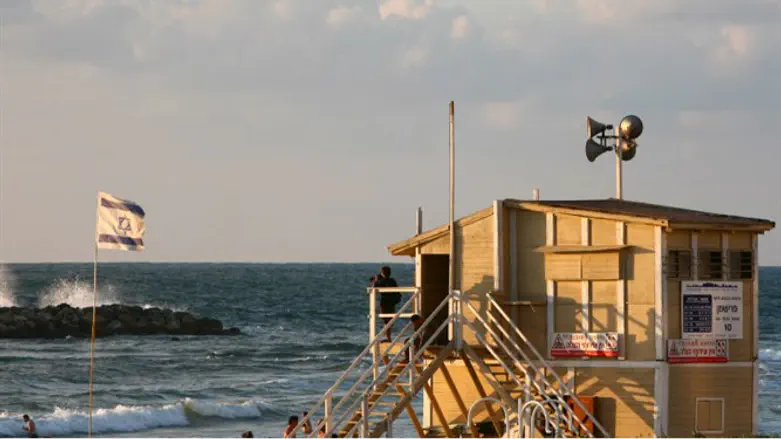
Summer is not yet over, but several childrne have already drowned in pools and on beaches around Israel. Is it because lifeguards are negligent? Attorney Amikam Harlap believes so.
In an interview with Arutz Sheva, Harlap differentiates between beaches and pools.
"We need to differentiate between beaches and pools," he said. "When it comes to beaches, the lifeguard usually has a license, and the main issue is bad water education among the swimmers. They don't always listen to the lifeguard, and the worst part is that sometimes people use unauthorized beaches. People are placing their lives on the line."
"Pools, however, are completely different. There, the lifeguard is watching a small area, and he's supposed to see the people the entire time, and be attentive and vigilant."
Still, more than a few instances of drowning occurred in pools. Harlap mentioned an incident he had dealt with himself.
"One of our cases was of a girl who drowned in a pool, and three hours after she lost consciousness, she died. The lifeguard noticed her after she had been underwater for quite some time, after some of the other children turned her attention to the girl. When we checked her cell phone, we saw that during the hour in question, most of the lifeguard's time had been spent talking on the phone. She was paying attention to other things."
He also said that before sending their children to pools, parents need to make sure their children are properly instructed, that pool lifeguards have a license, and that there is proper supervision. According to him, his client's case was not unique and he has in fact seen several similar cases over the years. In recent years, Harlap noted, the issue has become more severe.
"When it comes to children, they're usually not alone," he said. "The children come either as a group, with a camp, or with their parents. In both cases, you need to make sure there are enough lifeguards, and that the lifeguards and instructors are licensed. I would also make sure there is insurance. When you go to a camp, you can ask to see the swim instructor's and lifeguard's certificates."
Harlap also said lawmakers should at least consider passing a bill banning lifeguards from entering a pool with their phones.
"It's definitely a logical option," he said. "If a driver isn't allowed to hold his phone, there's no reason a lifeguard on duty should be able to make private phone calls on his phone. I've never heard of such a thing, though. But the Knesset should find solutions."